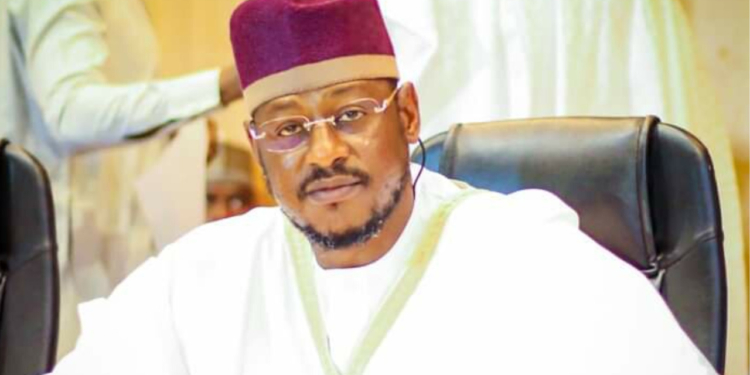The Katsina State governor-elect, Dikko Umaru-Radda, has explained why the president-elect, Asiwaju Bola Ahmed Tinubu, lost in the state during the 25th February presidential election.
Umaru-Radda said Tinubu lost in Katsina due to tribal and religious sentiments of the people.
He said some people and especially, the locals, were more concerned about the governorship and state house of assembly poll than the presidential poll.
The governor-elect stated these during an interview with newsmen on Sunday in Abuja.
WITHIN NIGERIA recalls that the Independent National Electoral Commission (INEC), declared that the presidential candidate of the Peoples Democratic Party (PDP), Atiku Abubakar, polled 489,045 votes to defeat Tinubu of the APC, who scored 482,283 votes in the state.
Katsina is the home state of President Muhammadu Buhari, a member of the APC.
The Katsina governor-elect said, “So for what really happened at the presidential election, you cannot take away tribal sentiment and religion, especially in the Core North. I think that was what played out and that was the reason we got that presidential margin in Katsina State.
“When it comes to gubernatorial election people were more concerned. They wanted to elect their governor and house of assembly members. It is only the elites that are concerned about the presidential election because they are the people that can reach out to Abuja, but people at the grassroots are concerned about who is going to be their governor.
“What Katsina did this time around was that they voted for credibility and merit. People no longer care about political party. I told you I have a very huge challenge because the people have a lot of confidence in me.”
Umaru-Radda extended an olive branch to all the opposition leaders in the state to work with him to build the state, saying the time of politicking is over.
He said his administration would give priority on assumption of office to tackling insecurity in the state, reforming the public service, improving the economy, healthcare delivery system, education, and establishment of an agency like SMEDA as part of efforts to deliver good governance to the people.










Discussion about this post